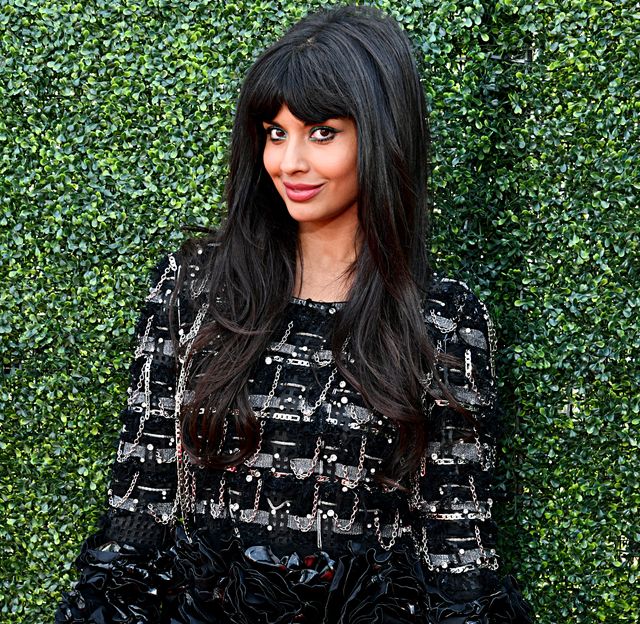

In 1997, Anita Roddick, the late founder of The Body Shop, launched a body-positivity campaign featuring Ruby, a generously proportioned doll. The accompanying slogan read: "There are 3 billion women who don't look like supermodels and only 8 who do."
This was, of course, revolutionary in a decade where the words ‘heroin chic’ were regularly, nonchalantly employed, but what’s more concerning is that now, two decades later, the message still feels significant.
This month, The Body Shop launches its Global Self Love Movement: a campaign to tackle the current confidence crisis. The brand will be inspiring small acts of self love through its Instagram page and the site’s new Self Love Hub in collaboration with a team of ambassadors including political activist Gina Martin; author Charlie Craggs; fitness coach Sophie Butler; and founder of queer content platform Girls Will be Boys, Char Ellesse.
To inform the campaign, The Body Shop commissioned a global study to investigate the extent of the growing lack of self-confidence in adults and young women – and the results are concerning, if not hugely surprising. The research found that one in two women feel more self-doubt than self-love, and 72 per cent often wish their body looked different.
Predictably, heavy users of social media have lower perceived levels of self-love, and younger generations are suffering the most acutely, with nearly 50 per cent of Gen Z women falling into the lowest self-love category.
It’s a tricky line to toe as a beauty company, whose goal is inherently to shift beauty products, but The Body Shop is one of few that has never photoshopped an image, or perpetuated beauty standards in order to sell the solution. And it’s testament to their commitment that Jameela Jamil, one of the most outspoken modern advocates for abolishing harmful beauty standards, has joined the brand to help spread the message. Here, she dissects the factors driving a generation of discontent, and reveals her thoughts on the route back to a safer place...
En 1997, Anita Roddick, la fallecida fundadora de The Body Shop, lanzó una campaña de positividad corporal con Ruby, una muñeca de generosas proporciones. El eslogan adjunto decía: "Hay 3 mil millones de mujeres que no parecen supermodelos y solo 8 que lo hacen".
Esto fue, por supuesto, revolucionario en una década en la que las palabras "heroína chic" se empleaban con regularidad y despreocupación, pero lo que es más preocupante es que ahora, dos décadas después, el mensaje todavía se siente significativo.
Este mes, The Body Shop lanza su Global Self Love Movement: una campaña para abordar la actual crisis de confianza. La marca inspirará pequeños actos de amor propio a través de su página de Instagram y el nuevo Self Love Hub del sitio en colaboración con un equipo de embajadores que incluye a la activista política Gina Martin; el autor Charlie Craggs; la entrenadora de fitness Sophie Butler; y fundador de la plataforma de contenido queer Girls Will be Boys, Char Ellesse.
Para informar la campaña, The Body Shop encargó un estudio global para investigar el alcance de la creciente falta de confianza en sí mismas en adultos y mujeres jóvenes, y los resultados son preocupantes, si no enormemente sorprendentes. La investigación encontró que una de cada dos mujeres siente más dudas sobre sí misma que amor propio, y el 72 por ciento a menudo desea que su cuerpo se vea diferente.
Como era de esperar, los usuarios habituales de las redes sociales tienen niveles percibidos de amor propio más bajos, y las generaciones más jóvenes son las que sufren de manera más aguda, con casi el 50 por ciento de las mujeres de la Generación Z en la categoría más baja de amor propio.
Es una línea difícil de entender como compañía de belleza, cuyo objetivo es inherentemente cambiar los productos de belleza, pero The Body Shop es una de las pocas que nunca ha retocado una imagen con Photoshop ni ha perpetuado los estándares de belleza para vender la solución. Y es un testimonio de su compromiso que Jameela Jamil, una de las defensoras modernas más abiertas de la abolición de los estándares de belleza dañinos, se haya unido a la marca para ayudar a difundir el mensaje. Aquí, analiza los factores que conducen a una generación de descontento y revela sus pensamientos sobre el camino de regreso a un lugar más seguro ...
However, other people aren't convinced that the filter is so positive.
Last night (Apr 12), Jameela Jamil posted a video of herself using it with the caption: "Teen cosmetic surgery is at an all time high. Plastic surgeons say that kids, and now many adults, bring in these filtered pictures of themselves and ask to be made to look like them."
She then added: "Fuck these crazy filters, they are racist in their presumption that a tiny Eurocentric nose and light eyes and a skinny (often lighter) face is the ultimate standard of beauty. Fuck how much they degrade women’s right to age or look tired."
Jameela also wrote: "I get the desire to use them. But they hurt people who look at them, and they hurt the people who use them, because it’s hard to accept your real face in the mirror after these digitally face and body altering versions of you have become your every day norm."











0 Comentarios